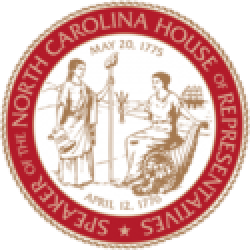Historic investments in Education, Healthcare, Infrastructure and Savings
Following months of good-faith negotiations between Republican Leadership and Democrats who set out with a common cause— to create a budget designed to serve all of North Carolina, the General Assembly has released a spending plan that addresses the critical needs of all citizens.
SB 105 makes historic investments in four critical areas: education, healthcare, infrastructure, and savings.
Education
Historic education investments include increases in early childhood services, teacher pay and professional development, community college staff and programs, digital learning at all levels, STEM programs, record investments in Historically Black Colleges and Universities, and more. Teachers will receive an average 6.7% over the biennium and up to $2800 in bonuses. Non-certified school and community college personnel pay will increase to at least $15/hr. The NC Promise Program will be expanded to Fayetteville State University.
Healthcare
This budget addresses the top healthcare crisis in our State by increasing pay for the thousands of direct support personnel who provide daily care for our elderly and most medically fragile and disabled persons and their families. An additional 1,000 Innovations Waiver slots are created to serve the intellectually and developmentally disabled. Postpartum Medicaid services for new moms will be extended to a full year, providing the support mothers and babies need to begin a healthy life. The General Assembly will also establish a joint committee to recommend legislation to study methods to address healthcare access and consider Medicaid expansion.
Infrastructure
A record $8 billion infrastructure plan that addresses critical needs across North Carolina, including over $800 million for school construction supported by the lottery; a new Brody School of Medicine at ECU, critical projects at every University across the state; funds for community colleges, expanding broadband service, local water and sewer projects, airports, roads and rail; parks, trails and clean water conservation. This plan begins the most ambitious building program in state history.
Savings and Tax Cuts
The State of North Carolina will build its reserves even further by increasing the “Rainy Day” Savings Reserve Fund to $4.25 billion and appropriating $800 million for disaster relief projects and reserves, including Hurricane Fred relief funds.
Overall, the pro-growth tax policy in this budget puts North Carolina on the path of lowering the personal income tax to 3.99% and eliminating the corporate income tax rate. Furthermore, in recognition of their service to the safety and security of our State and Nation, the military pensions for our Veterans will now be tax-free. PPP loans will be tax-deductible, a key to help to the small businesses of this state who relied on these loans to survive the economic shutdowns of 2020. The Historic Preservation Tax Credit will be extended to 2031, a key priority for rural and small-town North Carolina’s economic development.
State employees will also receive a 5% raise plus bonuses for the biennium and retired state employees and teachers will receive 5% in bonuses over two years.


